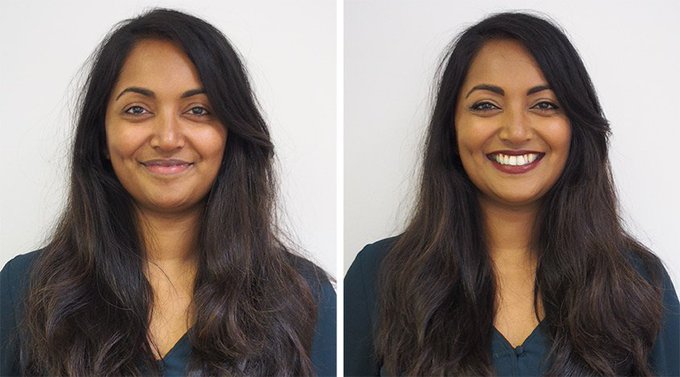Ayesha Muttucumaru originally planned to work as a divorce lawyer. But after she graduated from The College of Law – Britain’s largest law school – Muttucumaru’s interests soon led her down a different path.
Eschewing the world of the courtroom and legal documents, Muttucumaru turned to beauty blogging. She has never looked back.
The beauty journalist has earned several industry award nominations. These include Best Online Beauty Journalist at the Johnson and Johnson Journalism Awards. She writes multiple columns, including Get the Gloss’ “Not Fair”, a beauty section devoted to discussing make-up tips and options for women with darker skin tones.
For Ayesha Muttucumaru, Law and Beauty Have a Lot in Common
Once out of law school, Muttucumaru could not envision a life of court briefings and litigations. “Pursuing law as a career is a huge commitment…I feel like you really have to know that you want to do it long-term,” she explains.
Her legal training, however, has come in handy. “I’ve noticed a lot of parallels between law and journalism,” she says. “Having good communication skills and strong attention to detail are a requisite for both in my experience, as well as being able to condense long pieces of information into digestible chunks.”
She also notes that her law training gave her a boost in journalism with organizational and time-management skills. However, she admits that “it was risky leaving a career path that I spent so much time and money on for something that wasn’t guaranteed.”
Ayesha Muttucumaru Ascends the Beauty Hierarchy
Instead of litigating divorce lawsuits, Muttucumaru spends most of her time next to her computer and make-up products. In 2012, she started an internship at the health and beauty website Get the Gloss. She quickly ascended the ranks to Beauty Writer and now Senior Features Writer.
Muttucumaru had previously interned at a few other notable fashion companies – such as Grazie, Vogue, and Harper’s Bazaar. But she regards her position at Get the Gloss as a defining moment. “I really enjoyed [the internships], but each was for a finite amount of time and the absence of regular income was giving me some cause for concern,” she notes.
Muttucumaru can now focus on the things that interest her most. “I really enjoy the creativity and being able to work on content that helps people feel more confident about themselves,” she observes.
Makeup As Empowerment – Not Insecurity
Muttucumaru works with other beauty experts – including Beyoncé’s makeup artist Ruby Hammer – to provide tips and routines to women with darker skin tones. In her column “Not Fair”, she offers a wide range of advice. This advice spans tips and tricks, to wide-ranging advice on ignoring criticism.
In one of her earliest “Not Fair” articles, Muttucumaru noted a common stereotype equating light skin with beauty. She cited the prevalence of skin lighteners in places like Sri Lanka. In particular, she recalled an ad campaign for lightening cream. In it, a woman’s lover only accepts her after she lightens her skin using the product.
“If this is the measure of someone’s potential and earning power then it’s fair to say (or unfair as the case may be) that my chocolate coloured behind is in deep trouble,” argues Muttucumaru.
But Muttucumaru rejects these norms. Instead, she focuses on helping women (and men) like herself find the most flattering makeup for their authentic skin tones. To this end, Muttacumaru publically supported Sleek MakeUp for its “My Face, My Rules” campaign in 2017. This campaign celebrated each individual’s right to define beauty in their own terms.
“For me, putting makeup on makes me feel good whether it’s as a way to relax in the morning or as a creative outlet,” she says.



